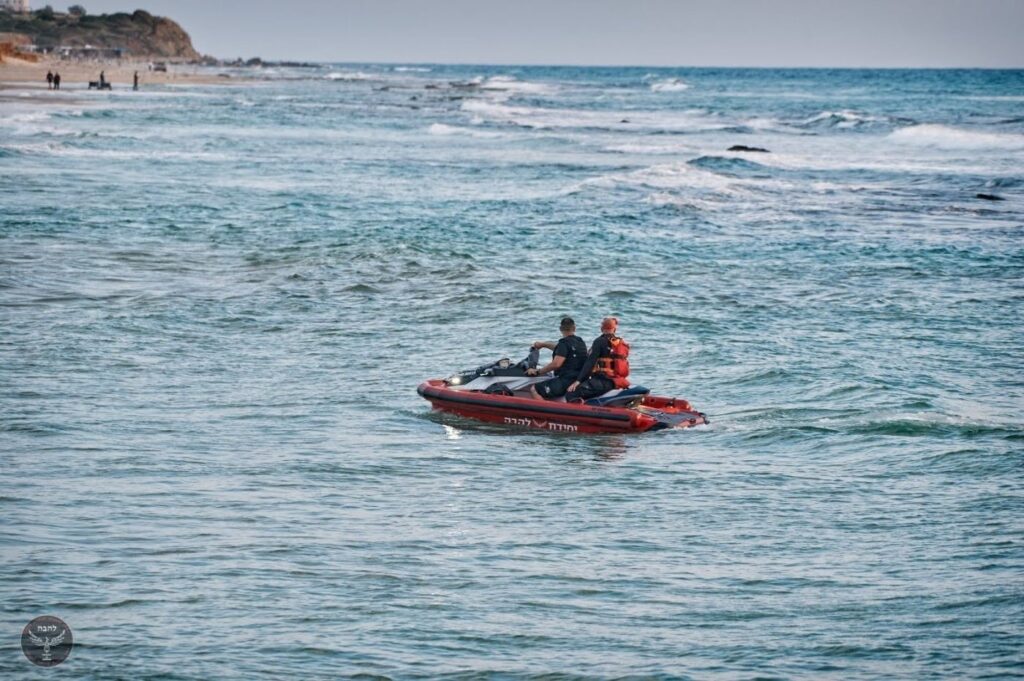Coast District police from the Hadera station arrived at the beach early Tuesday morning and renewed the search for the victim who was attacked by sharks on Monday.
The victim is a resident of Petach Tikvah in his 40s, married and a father of four, who stopped to fish on his way home from work in northern Israel on Monday. His identity was confirmed after his possessions were found on the beach and his truck was located nearby.
Israel’s Fire and Rescue Services reported on Tuesday afternoon that rescue divers have located remains in the search area and they have been transferred to the Abu Kabir Institute for identification.
Along with the police officers, who are deployed along the beach, additional forces participated in the search – the IDF, volunteers, municipal patrol inspectors, ZAKA, MDA, firefighters, the Nature and Parks Authority, and others.
The police continue to issue warnings to refrain from entering the water in this area, or from other beaches that were closed following the attack, from Hadera to Poleg beach in Netanya.
Dr. Adi Barash, a marine biologist with the Sharks in Israel nonprofit and the Steinhardt Museum of Natural History at Tel Aviv University, told Ynet that the Hadera incident was largely due to human behavior: “The water conditions — depth, current, visibility — were unsuitable for swimming and a large number of people clustered around the sharks, which is dangerous and prohibited.”
She mentioned multiple instances in which swimmers pulled sharks’ tails or entered the water holding children to “play” with them. Videos of swimmers, including children, standing in close proximity to sharks in the days before the attack have been circulating on Israeli social media since the tragic incident.
“This is peak feeding season for the sharks, due to increased fish deaths from warming waters and recent holiday rains,” Barash said. “Authorities must take steps to prevent harmful interactions and ensure the safety of these protected animals.”
Eliran Ovadia, a veteran diving instructor, dived on Sunday in the same area on the Hadera coast where the man was attacked. He told Ynet that the sharks come there “because there is warm water, currents, food. There are all the conditions for a habitat for an animal of this kind.”
He added, “I’ve been taking organized dives there for 13 years as part of my diving school. We take out a lot of people in the winter, dive with them, and there has never been an incident like this.”
According to him, the sharks in the Hadera area are well known to divers and can be safely approached, as long as basic safety rules are observed. “For 13 years, we have been diving there with groups and the sharks pass freely by us, at a distance of 10 centimeters, half a meter. They ignore us, sometimes a little curious, but never opened their mouths or tried to attack,” he said.
He stressed the importance of maintaining distance from sharks, warning to refrain from feeding them: “A shark does not know how to distinguish between the hand that gave him food and the food itself.”
(YWN Israel Desk – Jerusalem)











